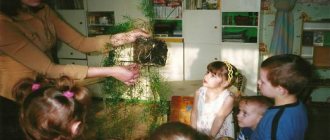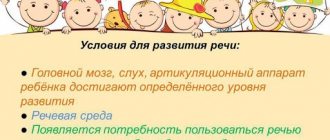Currently, environmental education is a priority area of the general education system for the younger generation, including preschoolers.
It was during this period that the formation of human ecological culture began. It is no coincidence that the terms “environmental education” and “environmental education” have become common in the vocabulary of teachers of preschool educational institutions. There have been numerous developments of environmental activities carried out with preschoolers. At the same time, practice shows that many opportunities for developing children’s relationships with nature are not realized. Errors of a terminological nature are allowed.
The purpose of this article is to help teachers understand some theoretical issues in organizing environmental education for preschool children.
There is an aspect in the education of preschoolers that can be seen as a kind of contradiction. On the one hand, it is generally accepted that environmental education is implemented in preschool educational institutions - numerous environmental events are held (games, projects, holidays); in universities, future teachers study the course “Environmental Education of Children”; corresponding textbooks have been published [2, 3].
On the other hand, in the main regulatory document - the Federal State Standard for Preschool Education - environmental education is not represented; the terms “ecology” or “environmental education” are absent. We are talking only about the development of primary ideas about the planet Earth, about the features of its nature, about the child’s mastering of initial knowledge about the natural world, elementary ideas from the field of living nature, natural science. The term “ecology” is not used in the Model educational programs of preschool education (“From birth to school”, “Success”, “World of discoveries”). It would seem that we should only talk about natural science, but not about environmental education of children.
In order to understand this issue, let us turn to the definition of ecology.



